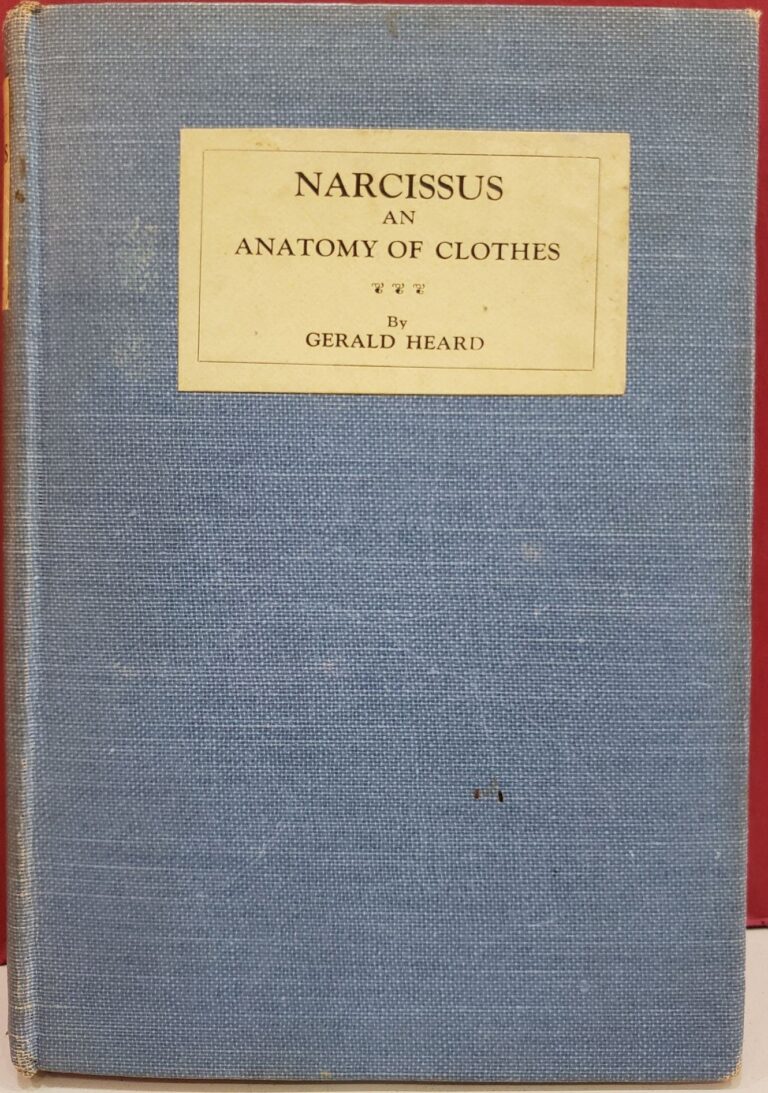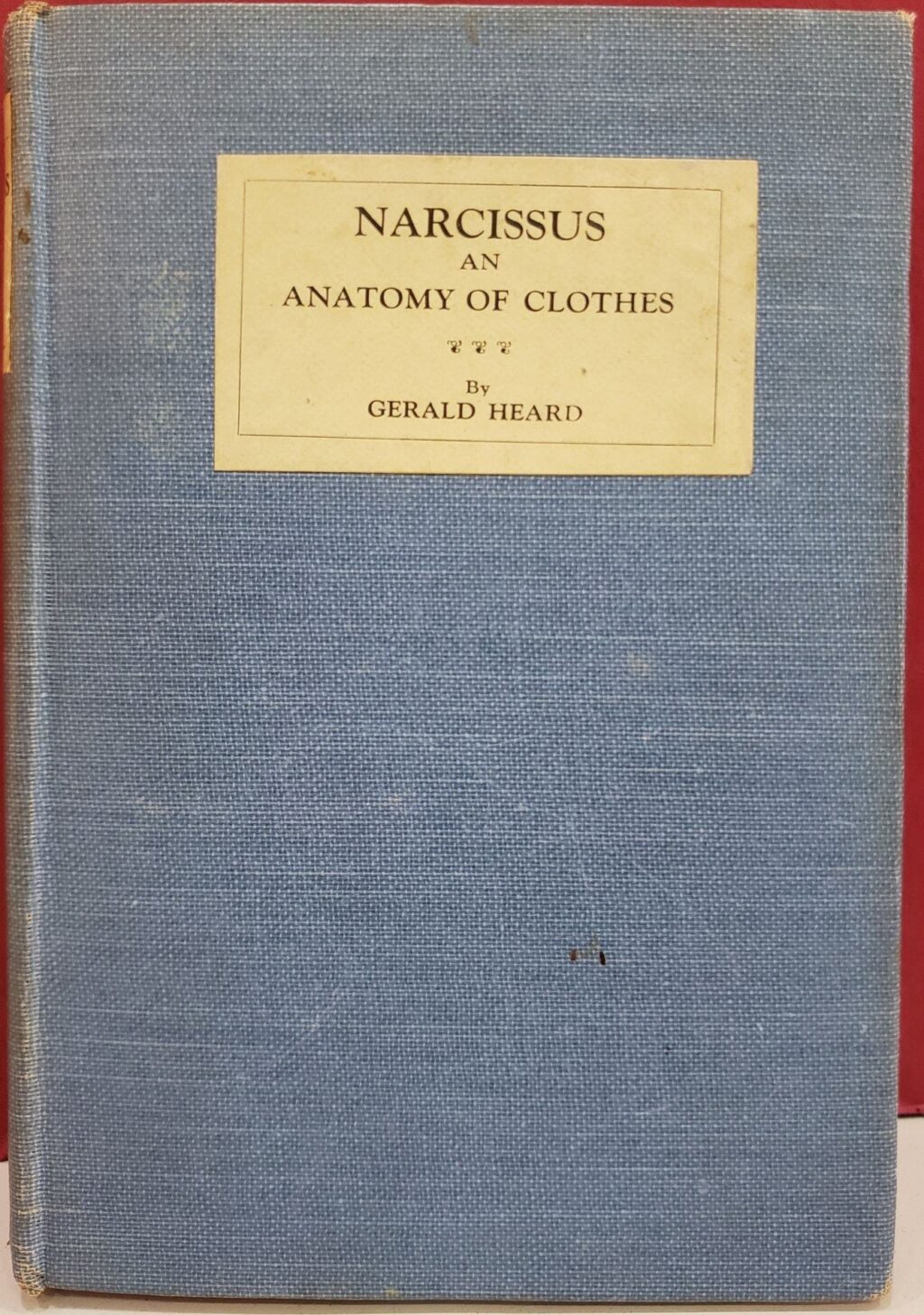Gerald Heard, Narcissus: An Anatomy of Clothes (1924)
Robert Menzies was no slave to fashion, but it is clear that in his younger years he did make a conscious and concerted effort to dress stylishly. Likewise, the Menzies Collection is hardly brimming with books on high fashion, but it does contain an interesting volume charting the history of fashion which Menzies likely picked up at age 29 or 30.
Narcissus was the first book penned by British-American author, philosopher and historian Gerald Heard. Its central argument is a curious one, namely that fashion is an outgrowth of humanity’s Darwinist impulse to constantly evolve:
‘The thesis of this book is that evolution is going on no longer in but around man, and the faster because working in a less resistant medium. Man becomes like a wireless valve, a transmitter which in the process immensely amplifies the current that he receives. When the Force that shaped all life evolved man, it seems that it kept him henceforward unspecialised, gave him, strangest of gifts, no vocation and equipment but, if not at one blow, freedom, innate opportunism. This was reserved for the favourite. To all the others their function and place. They sink into their groove, deeper, ever deeper; they run their appointed race; they become every generation more perfectly adapted to be what they are. Vague Trial and Error pass into the exquisite precision of instinct: restless wandering, physical preparation for doubt, distress and conflict, settles into a functioning so appropriate that by all to whom it befalls Nirvana is attained.’
The author traces man’s love affair with clothes to the very dawn of man, when since ‘nature had stripped him of a decent coat’ he felt compelled to steal one from other animals. But like architecture, to which Heard argues fashion is intimately linked, clothes quickly went beyond the utilitarian:
‘Man seems to have been driven by cold to the caves. Therein he found himself environed by rock, a substance which must have resisted all his early efforts to shape it. Still, if he could not have an architecture, Altamira’s caverns, the Dordoigne’s and ever fresh finds show that house decoration was already within his power.’
But the book’s most chilling passages come at the end, where Heard portrays a dystopian future in which an inevitable compulsion towards plastic surgery is eventually replaced by doing away with the human body altogether:
‘clothes have modified anatomy. The razor, the corset, and the boot are only clumsy initial efforts to reduce our barbarian bodies to something smooth and delicate, which we have never been. After violent and ignorant short cuts, comes manipulative surgery, facial operations, and other interferences. This method will give way to graftings, and finally with endocrine dosages and the other powers of the new bio-chemical pharmacopoeia we may change our frame as once our fashions. The control of the pituitary body, which seems to have the hair of the body as its province, might at a stroke put every barber out of business. All the while this is no idle fluctuation, the slow wash of life drifting up and down. There is a purpose in what the Puritan loves to denounce as empty vanity. There is the constant aim at reduction of mass. The centre of the vortex when there is perfect transmission, may itself appear empty. Physically, evolution passing out of us, our bodies may actually be on the way to disappear. With the house, the wardrobe, and the tool-chest, we have already begun to lay aside our fur, our nails, our teeth. But progress is still slow, for even on the threshold of the motor age we yet carry ourselves, yet bear with us a clumsy distillery of intestinal coils of which our laboratories, had our diet been scientific, would have relieved us long ago. The hermit crab abandons his own plate armour when he finds a better shield in someone else’s shell. We shall make a great leap forward when we have fully evolved machinery and motors by living in them.’
Sign up to our newsletter
Sign up for our monthly newsletter to hear the latest news and receive information about upcoming events.



